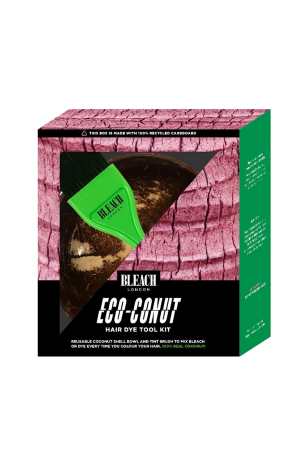The Most Inclusive Brands According to Gen Z
Gen Z is by far the most ecological and social sensitive generation, making it the most conscious consumer group. Zoomers know which are the most inclusive brands to choose, new research by UNiDAYS unveils.
Gen Z, the ethical fashion generation
Gen Z is fashion-forward and makes a big slice of the global fashion customer base with its generous $200 billion (more than £147 billion) annual global spend power. A new study by UNiDAYS shed light on the decisional power of the 'zoomers' and their commitment to clean and ethical fashion.

A new report commissioned by UNiDAYS, the world’s largest student affinity network, looked into the approach of Gen Z toward fashion, trends, e-commerce, and more. The result: Gen Z demands ethical fashion out loud.
Nearly seven in ten (68%) of Gen Z members demand that their clothes are manufactured to the highest ethical standards and 57% feel brands championing sustainability, equality and diversity are getting it right. These figures come from the recent report run by UNiDAYS surveying a panel of more than 18k Gen Z students to explore Gen Z’ fashion trends and preferences, their attitudes to retailers, sustainability, pricing and more.
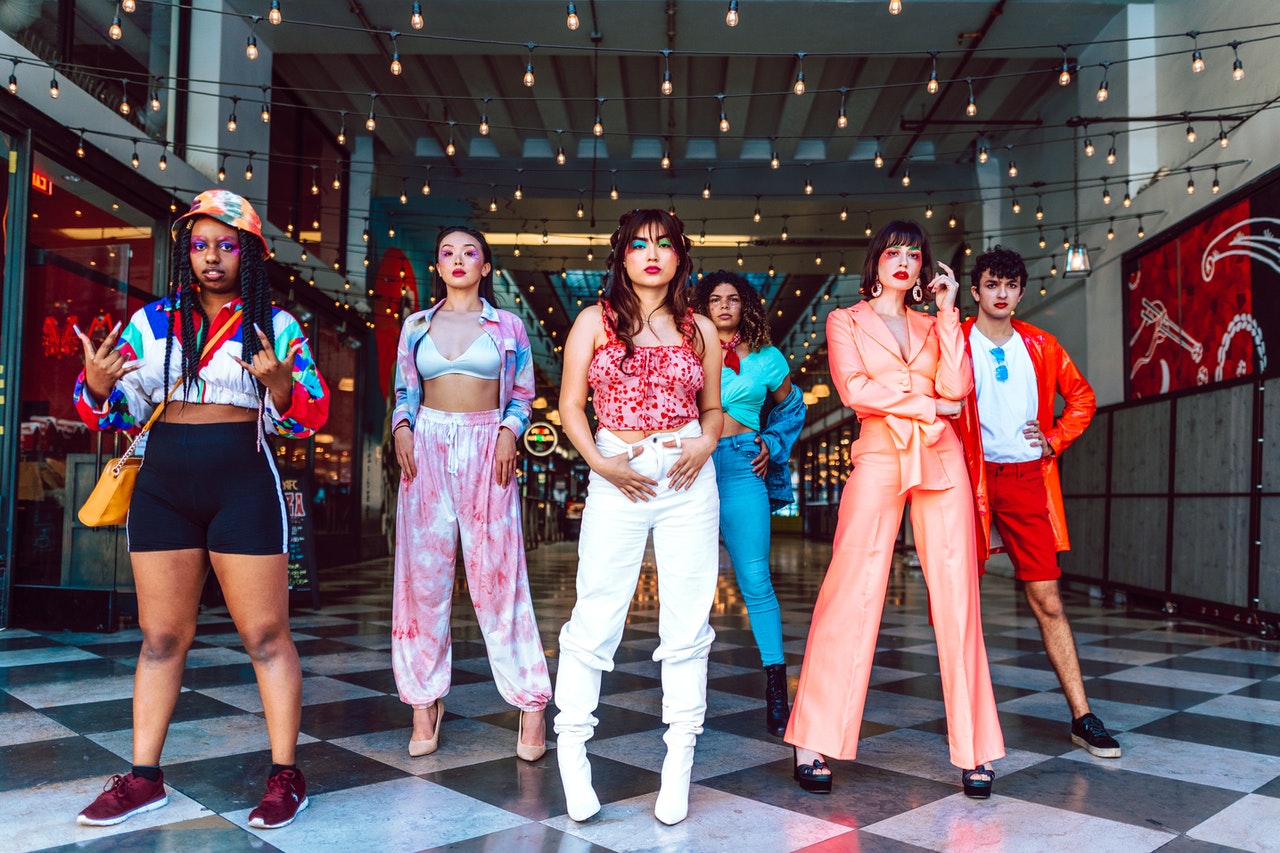 Ph. Rodnae Production, Pexels
Ph. Rodnae Production, Pexels
UNiDAYS Gen Z Fashion Report – Clean Fashion And Gendered Clothing
UNiDAYS asked a panel of their 20m+ verified student members for their opinions on all things fashion, in a series of surveys and polls. Over 18k Gen Z students provided insights about their relationships with their devices, platforms, fashion favourites and retail habits. The polls revealed passionate feelings towards clean-washing, conversation commerce, brand intrusion, third gender marketing and lack of trust when shopping through new social media checkout features.
As the role of real-world fashion adapts, fluid and device-driven business models must emerge for the fashion industry to serve the world’s first, and largest, generation of digital natives.
With global digital ad spend on social platforms predicted to hit $517 billion by 2023 (more than £380 billion), insight into the world’s biggest consumer demographic will support the bricks-and-mortar survivors and define the establishment of new fashion brands rising through the metaverse, all with Gen Z at their core.
Meet Gen Z
Born between 1996–2012, Gen Z is the most hyper-informed, hyper-connected and demanding generation of consumers in history. At 40% of total consumers, 'zoomers' are the biggest generation globally with a $3 trillion indirect annual spending power.
Unique Behaviours
Zoomers expect customised, personalised products and services plus value, across every device and every platform all with free delivery. Their real-world and digital existence are basically one and the same, with nuanced values that can seem contradictory on the surface: they love filters but resent retouching, they live and breathe social media, instant messaging, video games and live-streaming often all at the same time.
Gen Z' attention span is 8 seconds. Compared to 12 seconds for Millenials.
Make Connections
Their unwavering style, ethics and thrift make Gen Z the ultimate Apex Consumer. Brands must urgently connect with this high-potential, savvy, digital-native generation that is reshaping social commerce. Both start-ups and legacy brands could find this new world order daunting, but it represents great possibility.
- 2 BN direct annual global spending power
- 92% use discount codes
- 40% of total consumers in the UK, US, Europe & BRIC
Fashion-phoria
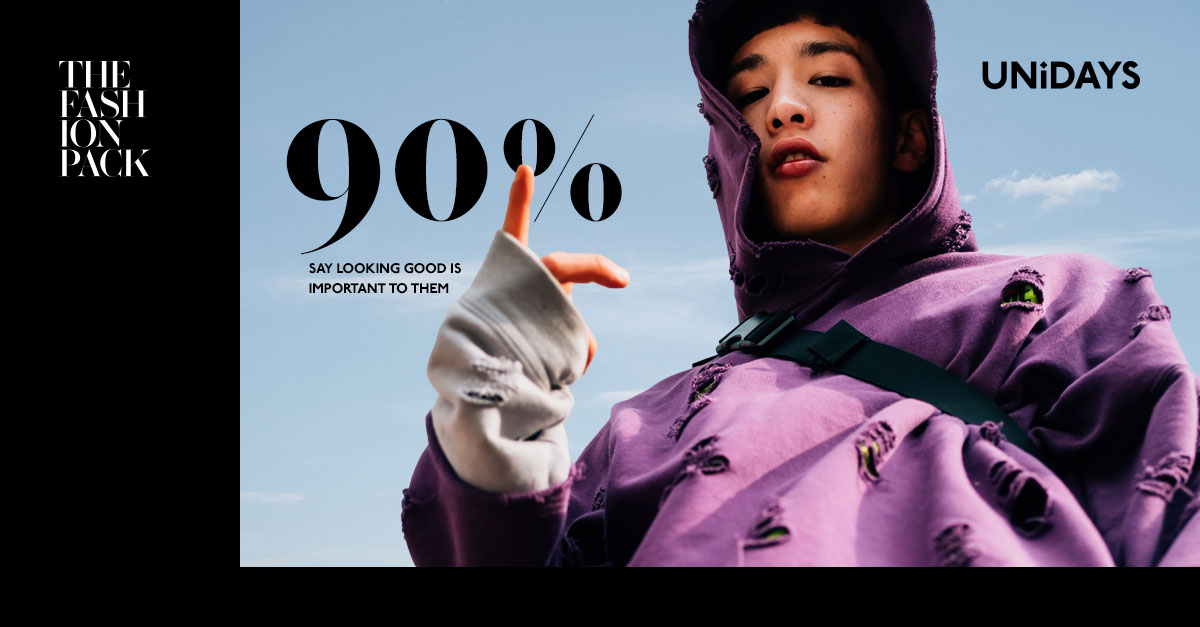
- 90% say looking good is important to them
- 96% say fabulous clothes make them feel confident
- 93% love how great clothes make them feel
- 80% enjoy a mix of styles
- 87% say great clothes make them feel sexy
- 56% say they do not follow fashion trends
GEN Z members are full-on fashionistas, their style, habits and ethics drive and dominate the trends and patterns are seen through social media and the surrounding generations today. 87% of zoomers agree that great clothes make them feel sexy, 96% say fabulous clothes make them feel confident and 79% state sustainable fashion is important to them. But they never pay full price. For anything.
If Gen Z Is Not Your Core Consumer Now, They Soon Will Be...
Gen Z maintains its own personal brands physically and across their platforms, with defined standards and values that dictate the brands they associate with. The average Gen Z spends 10.6 hours a day online (Adobe), 93% love great clothes, and 85% of them research everything online before buying. Zoomers' appetite for social is huge and brands have been quick to embrace the fun and engagement that quality content generates. But with 75% of Gen Z stating they do not trust shopping on social media, there is a disconnect between entertainment and commerce which brands must fast address. Gen Z is consuming culture and marketing in a fundamentally different way than Millennials or Gen X (the over the forties).
Of those surveyed, 87% of Gen Z mostly communicate with their friends through instant messaging, just 13% call them direct, and only 14% would try a new fashion retailer based on seeing a TV ad. Fashion brands must get creative to establish and nurture these new relationships to ensure they stand the test of time.
Viviane Paxinos, global GM at UNiDAYS, states: 'We found that, for Gen Z, TikTok is the place to be on social, followed by Instagram. Given that fashion purchases made by 49% of those we spoke to were influenced by brands they saw on social media, platforms like TikTok and Instagram are a growth opportunity for fashion retail marketers looking to drive brand awareness and social commerce. Another important factor stems from TikTok's early guidance to marketers: don’t make ads. Make TikTok's.'
Good News For Fashions
- 76% are looking forward to partying again
- 64% expect to spend more on outfits for events now
- 78% plan to dress up party now that lockdown has eased
- 54% will spend more on beauty now social occasions are back
Despite 18 months in lockdown, 90% of Gen Z still value looking good. However, 65% expect their fashion purchases not only to be affordable but to be made to the highest ethical standards. Fashion, fast or otherwise, can no longer rely on value alone.
'Audiences go to the likes of TikTok, Instagram, Snapchat and YouTube for exclusive moments, entertainment, advice, humour, and authenticity in content. Fashion brands need to create content that feels genuine for the environment, or Gen Z consumers will swipe to the next video. Fashion brands should also be looking at social commerce as part of their wider omnichannel retail strategy, driving consumers in-store for brands where bricks and mortar play an important role. 84% of Gen Z are looking forward to returning to shops, and it shouldn’t be underestimated how impactful a shareable, interactive store experience would be in driving positive online endorsement and sales.'
Viviane Paxinos, global GM at UNiDAYS
Extreme Value
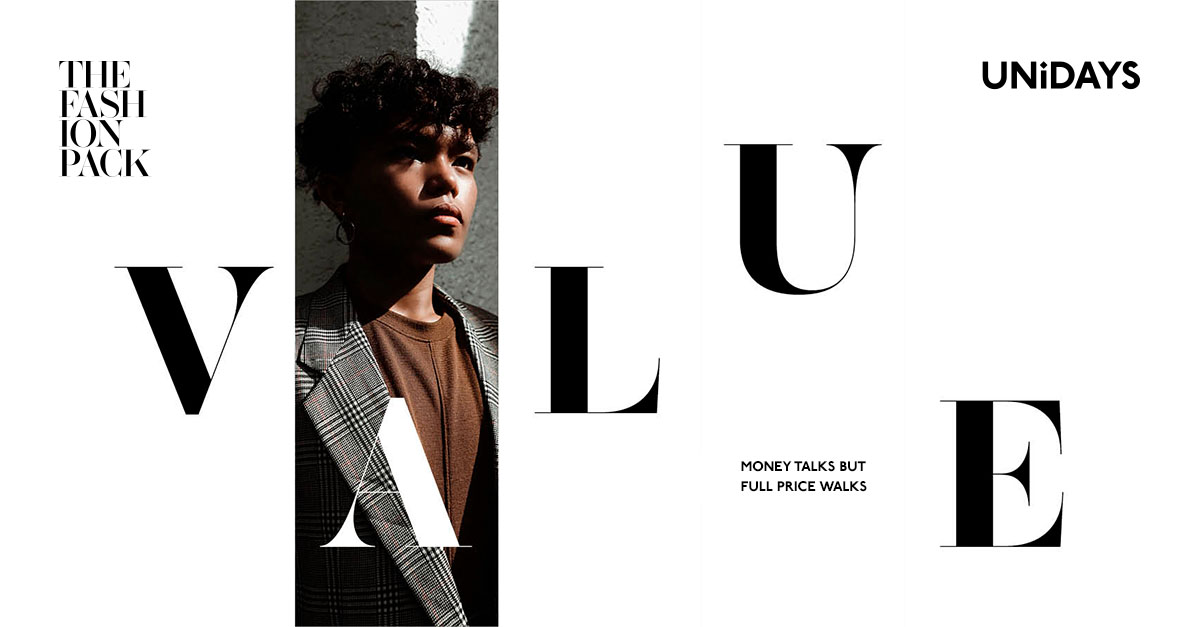
- 95% always keep an eye out for a bargain or offer
- 75% are used to buying clothes solely online due to lockdowns
- 53% say shopping is a social experience shared with friends
- 85% research online before committing to a purchase
- 82% are loyal to brands that offer regular discounts
- 66% intend to spend more on clothes when they go back to Uni
- 63% spent less on clothes during lockdown while 37% spent more
- 84% are looking forward to returning to shops
Trust And Confidence
- 49% do not mind advertising if it’s relevant to them
- 76% see too many ads on their feeds
- 83% want to cut their time spent on social media
- 75% do not trust shopping directly on social media
- 53% believe social media is bad for society
- 93% say social media promotes unrealistic life and body goals/ beauty standards
- 90% believe that unlabelled, retouched imagery should be illegal for influencers to use when endorsing brands/products
For the majority of Gen Z, online is its preferred way to shop; 85% research online first but 75% do not trust shopping directly on social media. Brands creating Instagram and TikTok content and those collaborating with influencers should be cautious, 90% of Gen Z believe it should be illegal for Influencers to use unlabelled and retouched images, while 93% believe social media promotes unrealistic life and body goals. Despite being the world’s first fully digital native consumer whose digital presence is as real as their physical one, they challenge everything they see.
Clean Fashion
Gen Z is conflicted: 59% of zoomers consider themselves woke, but one in four do not know where their clothes are manufactured.
Fast fashion serves zoomers' obsession for new and fresh, but grates against their ethical guilty conscience of quality not quantity. The rise of Depop and co. signifies a new dawn for wardrobe resale hacks that do not cost the earth, but where does that leave fast fashion brands? How deep does their culture of sustainability go?
Gen Z’s Earth-friendly attitudes and spending behaviours have triggered fashion to clean up their emissions and exploitation records, so a happy medium is emerging. Sustainability is finally being addressed by brands keen to be on the right side of history and stay relevant. Gen Z has zero tolerance for irresponsible brands, they are the sole demographic with the passion, power and platforms to take sustainability into the corporate boardrooms. Their digital and physical life are one of the same, which ensures their social media posts will continue to elevate those brands that champion change and shame those that blatantly do not.
Sad But True
It takes 3,781 litres of water and 33.4 Kg of carbon emissions to make one pair of jeans. Up to 175,000 tonnes of plastic microfibres are dumped into the ocean each year, equivalent to over 17bn plastic bottles, all from synthetic clothing. Microfibres cannot be easily extracted from water and pollute the marine wildlife food chain.
United Nations Environment Programme (UNEP)
Gen Z on Clean Clothing
- 26% unsure where their clothes are manufactured
- 79% say sustainable fashion is important to them
- 68% want clothes manufactured to the highest ethical standards
- 59% consider themselves ‘woke’
- 23% feel peer pressure to shop more sustainably
- 39% would buy pre-loved because it is more sustainable
- 33% pick recycled items because they are cheaper
- 67% prefer fashion brands that appeal to their social conscience
- 33% feel that brands who champion sustainability do so in the right way
Gen Z On Clean Beauty
- 86% say clean beauty is important to them
- 33% always read the ingredients label before a purchase
- 88% prefer natural beauty and skincare products
- 78% have returned a product to the shelf because of the ingredient
Responsibility
Who does Gen Z think should be responsible for regulating the beauty industry to ensure they use sustainable and harmless ingredients in their products?
- 20% the government
- 47% the brands themselves
- 29% an independent industry regulator
Increased Desire For Gender Neutrality

'More than ever, mainstream consumers are being challenged to rethink accepted societal norms and structures driven solely by gen z’s passion for post-gender diversity and inclusion.'
Viviane Paxinos, global GM at UNiDAYS
Gen Z embraces gender-neutral products and marketing. Zoomers acceptance has generated a wave of opportunity for fashion and beauty brands to expand into non-binary clothing and product lines. Six years ago, at its height of popularity, Facebook added a third, customisable gender choice that offers 58 identity options such as androgyne, transmale, trans-person and more other brands soon followed.
The beauty industry saw campaigns for cosmetics start to include trans models and cis straight men. Global fashion brands including Farfetch, Missguided, ASOS and Boohoo have all recently launched high profile campaigns featuring diverse and empowering models to promote their inclusive collections.
Blurred Lines
Generation gender-neutral has the least concern over owning ‘gender appropriate’ clothing, preferring to shop by personal style of self-expression, rather than traditional labels.
- 43% believe that assigned gender does not play a role in choosing clothes
- 23% think gendered language in stores is outdated or offensive
- 79% are not put off buying clothes that are marketed to the opposite gender
- 64% have bought clothing for themselves that is marketed to the opposite gender
Luxury Brands Must Adapt...
'Be aware, brand equity that triggers gen x will not trigger Gen Z. 79% of young consumers agree that sustainable fashion is important to them and 68% want clothes manufactured to the highest ethical standards. Luxury brands must adapt their narrative to apply to the new apex consumer that is gen z. Generic claims of craftsmanship will not cut it with this demanding ethics driven group, they want specifics.' Josh Rathour, found and CEO of UNIDAYS
Label Lovers
Luxury brands obviously find engaging with young consumers difficult as 71% of Gen Z feel designer brands are not relevant to them. But by over-focusing on Gen X (the over the forties) and not connecting with a younger audience, aspirational brands risk not only alienating their appeal to Millennials but their future core consumer too. Brands that underestimate Gen Z risk their relevance and label longevity. Gen Z is the most demanding, informed and least loyal consumers in history, if they find a brand irrelevant now, the likelihood is they will never buy into the brand at all. Affinity is seeded in youth. Luxury brands that do not emotionally engage with their future consumer will ultimately fail.
Designer Desire
- 32% follow designers
- 47% buy luxury clothing as a treat
- 40% have an eye for limited-editions
- 27% buy luxury clothing for the quality
- 54% describe themselves as loyal to certain fashion brands
Loving Luxe
- 30% have bought 1-2 pieces of designer clothing this year
- 50% say they have bought more fashion in 2021 than previous years
- 47% name design as their top consideration when buying luxury fashion
- 64% name price as their top consideration when buying luxury fashion
HOWEVER...
- 54% do not love labels
- 27% believe designer clothes are of higher quality
- 77% say they cannot afford designer brands
- 54% have not bought any luxury fashion this year
- 71% do not feel designer brands are relevant to them
Do Not Survive, Thrive

If Gen Z is not your core consumer now, they soon will be.
Gen Z is defining which fashion brands survive and which brands thrive. Those labels comfortable with Gen X and Millennials must learn what triggers Gen Z and fast. Affinity is seeded in the young, fashion brands that do not bother engaging Gen Z will ultimately fail. But despite being the world’s first fully digital native consumer with defined personal brands, and whose digital presence is as real as their physical one, Gen Z’s relationship with the platforms they populate is guarded at best.
Brands must work hard to win trust in the social space. Gen Z' unwavering standards, ethics and thrift make Gen Z the ultimate Apex Consumer. Brands must urgently connect with this unfamiliar, contrary, digital-native generation who are reshaping social commerce. Fashion start-ups and legacy brands could find this new world order daunting, but it represents great possibility.
Plastic and shopping. Are supermarkets doing enough?
This is a plastic world and much of the plastic littering our environment seems to come directly from supermarkets. A survey conducted by Toluna digs into UK consumers' thoughts.
Second-hand and sustainable spring cleaning: tips
It is incredible how something simple and trendy like buying second-hand shows to be the best choice for the planet and ourselves when paired with a healthy decluttering and an organised spring cleaning.
 Photo by Cottonbro, Pexels
Photo by Cottonbro, Pexels
Choosing second-hand can help our finances and break today's consumeristic chain. To kickstart the change, consider decluttering. Interiors therapist Suzanne Roynon offers expert advice on how to carry out a sustainable spring cleaning.
Social Habits And Data
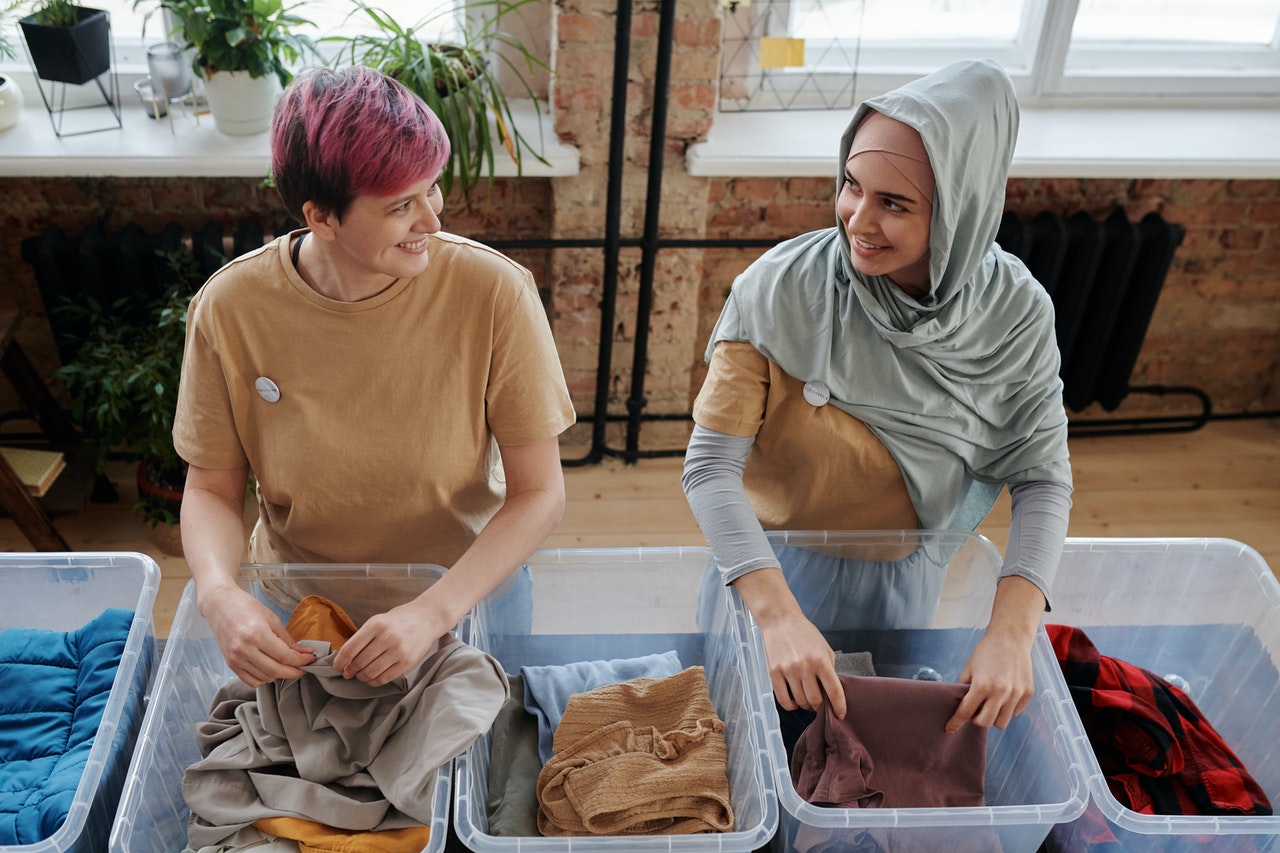 Photo by Julia M. Cameron, Pexels
Photo by Julia M. Cameron, Pexels
We all collect more than we need either for the sentimental link to gift, an impulsive shopping spree or the hope to squeeze back inside some dear, old and shrunk clothes. An annual wardrobe spring clean can be the perfect way to give unwanted clothing a new lease of life. The latest data from Shpock’s annual Second Hand Effect report, released ahead of World Environment Day (5th June), shows Britons potentially saved 5,175 tonnes of carbon dioxide emissions last year by buying and selling on the app – which is the equivalent amount of emissions as driving around the world in a standard car 574 times or driving to the moon 60 times.
Pros Of Decluttering And Second-hand
 Photo by Victoria Borodinova, Pexels
Photo by Victoria Borodinova, Pexels
Decluttering is a satisfying and healthy habit to gain more space and clear our mind in one go. It often starts from clothing and it ignites a green renovation. Giving away, or re-homing pre-owned clothing contributes to a circular economy; while buying second-hand translates into saving in gas emission, usage of water and wastage during the production chain. From January 2021 to March 2021, Shpock data saw the number of fashion items sold on its website increase by a third on average (33%) and future predictions show that by shopping on marketplaces, Britons could be potentially saving 1.2 million tonnes of plastic, 7.8 million tonnes of steel and 0.7 million tonnes of aluminium.
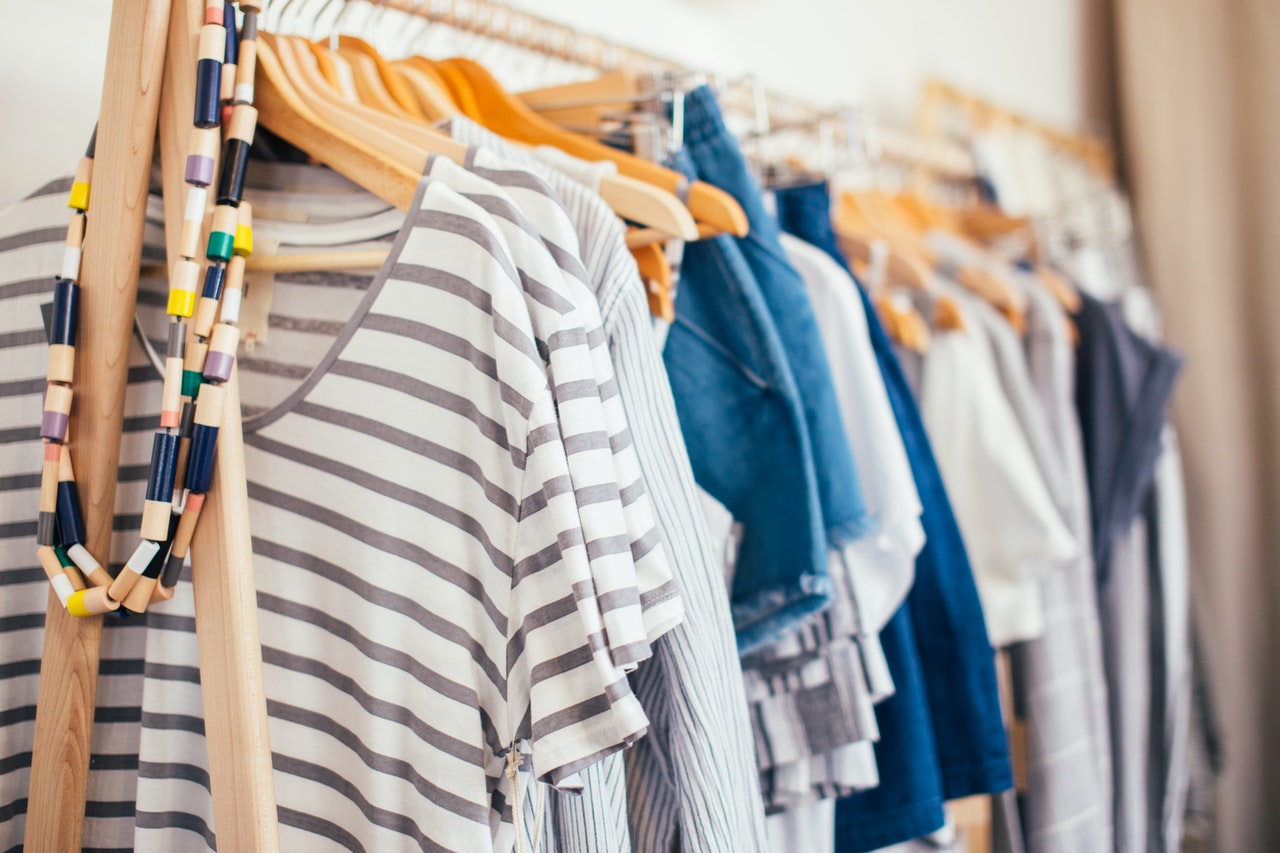 Photo by Rachel Claire, Pexels
Photo by Rachel Claire, Pexels
Interiors therapist Suzanne Roynon shares her top tips and tricks on how to carry out a sustainable spring clean:
- 'Give yourself time and focus on items not bringing you joy. Spring cleaning the wardrobe isn’t a ten-minute job, but when you get it right, you’ll save yourself countless hours in the months and years to come. Take everything out of your wardrobe and pile it on the bed. This is where you get totally honest about each item; does it remind you of anything unhappy, disappointing, hurtful or bring you down in any way?'
- 'Always Think Sustainably - give pre-loved items a new home. When it comes to letting your unwanted clothes and possessions go, use marketplaces to sell items on, they have a huge array of buyers and it's also a great way to earn money. Never send stuff to a landfill.'
- 'Tackle drawers, shelves and anywhere else you keep foldable clothes. Follow the same principles to assess how they make you feel and if anything does not make the grade, let it go. Do the same with accessories, jewellery, gadgets, and products – anything you don’t use isn’t serving you and it’s taking up space.'
- 'Time to organise and clean - give the items you're keeping a fresh space. Before putting anything away, vacuum and give every drawer and cupboard a wipe down with a suitable cleaning product inside and out. Your clothes deserve a fresh, clean space and so do you!'
- 'Think about the clothes-hangers you use. The brain responds well when things are ordered, so using hangers which match rather than a jumble of odd shapes and colours is a simple mind-hack as well as being visually rewarding.'
- 'Order your wardrobe. Hang clothes so items of the same type are together and sort them by length; that way you’ll know exactly where to find your perfect outfit every day. This method makes putting away laundry much more straightforward and your eye will appreciate the organisation each time you open the door.'
The 'three Rs' rule never fails: reduce, reuse, recycle.
Original data by The Red Brick Road
Bleach London Launch ECO-CONUT HAIR DYE
Bleach London, a conscious and responsible company with the emphasis on producing products that reduce ocean waste and pollution by cutting down on single-use plastic utensils and packaging.
Second-hand clothing Set to overtake the fast fashion
Consumers are increasingly turning towards second-hand clothing, studies are revealing – with conscientious buyers set to make pre-loved items a bigger market than so-called ‘fast fashion’ by 2029.




